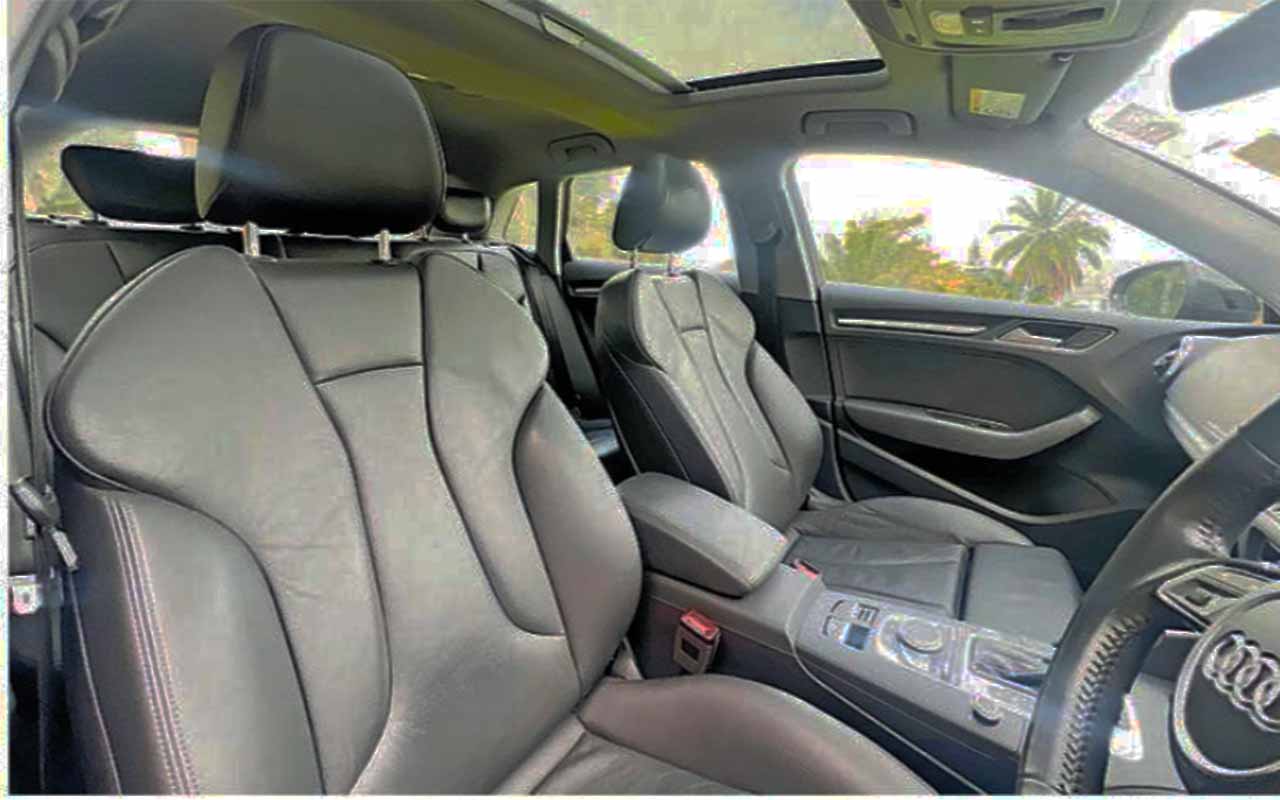Prime
How financial literacy improves spending habits

An empty money purse. Many Ugandans are still stuck in the “earn-spend cycle”, a problem experts attribute to lack of financial discipline. Photo by Rachel Mabala
What you need to know:
Managing your finances without a budget and clear plan means you are likely to spend whatever you earn. Eronie Kamukama finds out how being financially illiterate affects you.
When 35-year-old Dickson Mushabe joined Makerere University in 2002, he put up a number of small businesses to keep him going.
“I had a video library in Wandegeya and every evening, I would go, pick all my money and buy supper for my friends and I,” he recalls.
The executive director Hostalite, a web development company in Uganda, narrates that he used to make a profit of Shs1 million from his businesses every month but failed to manage his income because he had no financial knowledge at all.
“I failed to separate my personal income from company money and more so when it came to my finances, I simply ate all my money,” Mr Mushabe says.
He admits he made a lot of mistakes and by the time he understood how to manage his personal income, he had learnt the hard way.
Financial literacy in Uganda
Many Ugandans are still stuck in the “earn-spend cycle”, a problem experts attribute to lack of financial skills. Surprisingly, this affects the educated and illiterate alike.
Mr Ben Bwesigye, a father of one, is a pedicurist and lives in Kyebando, a Kampala suburb. He charges between Shs1,000 and Shs3,000 from each person he works on and earns between Shs15,000 and Shs30,000 on a daily basis.
However, one problem, he says, has kept him poor.
“Every time I work on five women even if it is around 1pm, I first spend the money on buying some tot packs of spirits (packed alcohol),” he says.
Asked whether he always budgets for his alcohol, Mr Bwesigye quickly shakes his head.
“I can hardly remember that my son in nursery school needs fees, how can I plan on how much to spend on alcohol. I simply drink,” he says with a grin.
For Ms Jackline Nakate, a fresh graduate from Makerere University, keeping track of her expenditure is not an option.
As I quiz her on how much she spends a month, she confidently answers, “roughly Shs200,000 a month.”
Ms Nakate lives with her parents in Kisaasi and explains that her expenses include transport and meals at her job which she got six months ago.
But what about the money spent on new clothes, shoes, hair styles and airtime?
She says, “Ohh! I really never count those expenses. But all I know is that my job does not pay much and as of now, I guess I am spending more then I earn.”
And so is the culture in Uganda. Mr Mushabe says most Ugandans know how to spend money compared to how they ought to plan for it.
Mr Leo Henghes, director Universities Together Empowering Development (UniTED), a non-governmental organisation in Uganda, like Mr Mushabe, notes: “Financial literacy among students here is very poor as there is a lot of pressure on them to spend. They spend the money they have early in the semester and this can make some of them drop out of school,” he notes.
In addition, Mr Henghes says: “People lack a long-term vision of what they want to achieve so they do not know how to use their money to grow.”
How relevant is financial literacy?
Mr Ben Bernanke, an American economist, once said the financial preparedness of a nation’s youth is very essential to their wellbeing.
He explained that in light of the current problems, it is critical for individuals to become financially literate at an early age so that they are better prepared to make decisions and navigate an increasingly complex financial marketplace.
According to Mr Joseph Byabazaire, chief executive director SEPSEL, an organisation in Busia that trains vulnerable households in financial literacy, budgeting, saving, investment and the ability to ploy through financial negotiations are central in knowing one’s financial responsibilities.
He states that understanding the need for a budget is key but unfortunately across Uganda, 80 per cent spend money without a budget.
“People go to the market and buy as their eyes suggest and do not sit down to plan short and long term budgets,” he says.
Budgets help to compare what you earn against what you spend and keep expenses in line with what you need.
Mr Henghes settles for one basic importance saying understanding one’s finances enables one to live with their means.
“It helps to budget, to know how much you are spending per month and then say this is my income. I am spending this, not losing or spending money beyond my means,” he says.
There is a direct relationship between saving and budgeting. It is pertinent to know how to create saving plans for emergencies or even the next ten years. This motivates one to work harder.
Mr Henghes settles for one basic importance saying understanding one’s finances enables one to live with their means.
“It helps to budget, to know how much you are spending per month and then say this is my income. I am spending this, am not losing or spending money beyond my means,” he says.
In one way or another, people who want to use mainstream financial services but have limited financial knowledge face challenges.
For instance, once one is convinced to take a loan without preparation, they are likely to use it for other purposes since they do not know how to invest.
So it becomes vital to understand why one needs a loan, where to invest and whether one will manage to pay back.
A deliberate walk through streets of Kampala exposes you to several diverse financial institutions and as a potential client; you need to negotiate with confidence for what you want.
My Byabazaire says: “Different banks have different interest rates, products so your knowledge helps you to negotiate or to ask for the different products that suit your needs.”
More than a decade of saving without investment is likely to create less impact as one’s money loses value. Financial knowledge helps one to make informed choices on what to invest in and how to utilise the return on investment to increase one’s household income.
Mr Ben Mwiine, a media personality says financial literacy is the fundamental to earning more money.
“If you do not know how to manage your money, how will you be able to make any money? If you do not learn enough about money, you will probably be broke your entire life,” he says.
With little or more knowledge on managing finances, it is never too late to get your financial house in order.
Mr Mushabe believes reading aids the process of learning how to manage personal income.
Reading as a choice is not so attractive but he encourages people to draw inspiration from self-help books on financial independence, saving, budget, investment and avoiding indebtedness.
Once upon a time, information was confined to books but with the internet and an explosion of digital applications, information is now a click away.
Mr Mushabe also advises people to utilise apps that teach personal financial management where one can use a mobile phone to calculate daily expenses.
Mr Byabazaire recommends active participation in financial literacy workshops to improve one’s skills.
Several banks including Bank of Uganda are currently sensitising people to improve how they manage their finances.
“Some of the programmes are running on radios and television. If people could listen to them and actually practise, they would become more sensitive to financial management,” Mr Byabazaire says.
Financial literacy
The Strategy for Financial Literacy in Uganda (2013) by Bank of Uganda defines financial literacy as having the knowledge, skills and confidence to manage one’s finances well while taking into account one’s economic and social circumstances.
Financial literacy involves having the capacity to understand one’s rights and responsibilities in managing personal finance.




